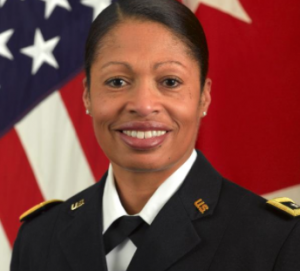
By Nigel Boys
Voice & Viewpoint Newswire
When Major General Marcia Anderson became the first African-American woman to hold the position of two-star general in the U.S. Army in 2011, she broke many barriers. However, the woman who holds the highest rank of any black woman in the military will be the first to tell you that in the fight for equality in the Armed forces, she still has many obstacles to overcome.
According to Anderson, the number of women in the Army only makes up about 15 percent of the total serving members. She adds that her fight is to increase that number of women to make the Army more reflective of American society.
Anderson went on to say on a conference call to reporters this week that the Army was still full of discrimination towards women, especially African-American women. She adds that the banning of certain hairstyles for black women who choose to wear their natural hair is a prime example of discrimination in Army Regulation 670-1.
The two-star general continued, stating that although the Army expects their service members to dress and act accordingly to show a professional appearance to the public, the banning of hairstyles such as twists, dreadlocks, braids and Afros, are something that should be looked into.
Anderson admits that she never intended to make the Army her career. She adds that she only ended up in the Army after she joined the Reserve Officers’ Training Corps while trying to fulfill a science-credit requirement for Creighton University.
As to what made up Anderson’s mind to stay the course and remain in the service, she believes that it was when six female soldiers who were passing by in formation saluted her so encouragingly and almost ignored the other male officers she was with. She adds that one of her male companions made the comment that the female soldiers had looked upon them as so much “chopped liver” when they saw Anderson.
“They were excited to see me, and I realized then that I needed to stay because I needed to motivate more young women to follow the same course,” states Anderson. She continued, “It … made me more determined to stay, to do a good job, to make sure that my ethics were above reproach, because in being the first, there’s always a danger that you could be the last.”


